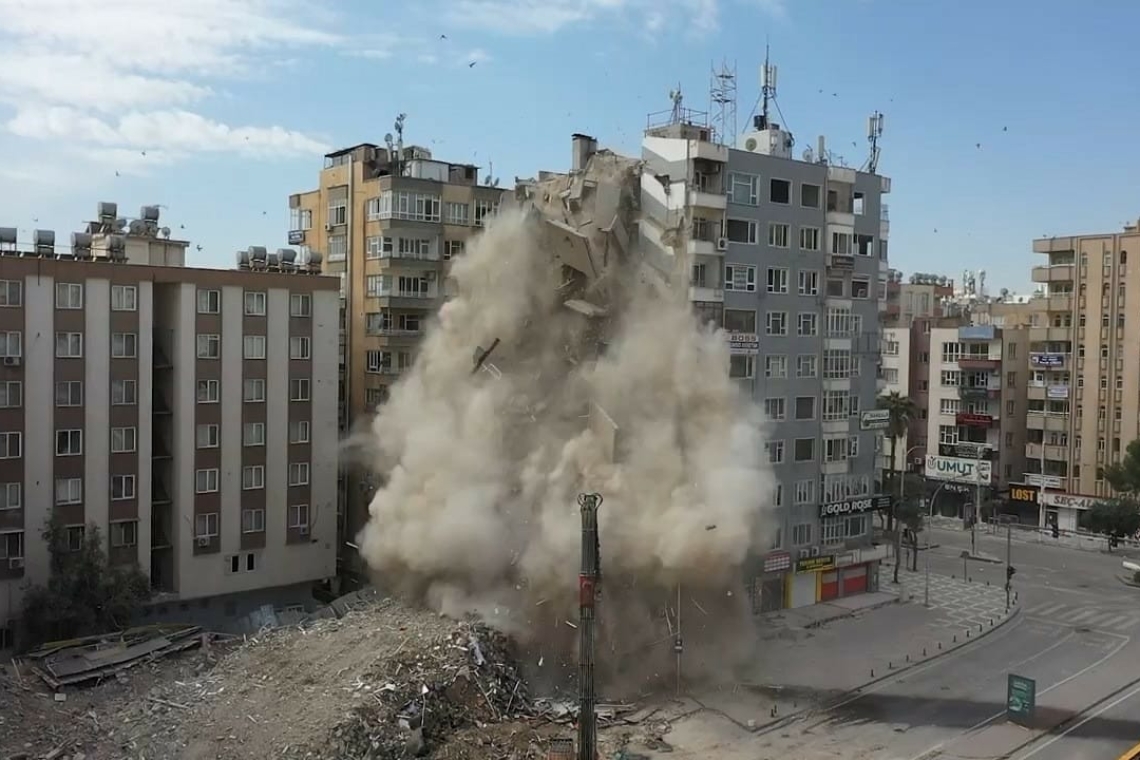Following the devastating February 6 earthquakes in Turkey, which severely affected 11 provinces including Şanlıurfa, many journalists in the region have been forced to leave their profession and take up jobs as factory workers. Those who managed to stay in journalism are struggling financially and feel abandoned, calling for support to revive the local press.
The decline of journalism in Urfa
The earthquakes that struck both Turkey and Syria not only destroyed cities and families but also crippled the local media industry. Many journalists in Urfa have been unable to find work and have resorted to factory jobs or freelance gigs from home to make ends meet. Those who are still trying to keep the profession alive are fighting against economic hardships and a lack of support.
One of the biggest challenges faced by local journalists, according to former journalist İsmail Şahinalp, is the absence of unions. He noted that many local media outlets in Urfa downsized after the earthquakes due to rising costs in rent, paper, printing, and electricity. Having lost his job, Şahinalp now works freelance from home, editing videos to survive. He emphasized that without unions to defend their rights, media workers are left powerless. “In our city, media employees are paid far less than minimum wage, and they have no strength or organizations to advocate for their rights,” he said.
Journalists pushed out of the profession
Tuğba G., another journalist from Urfa, had to leave journalism after eight years due to unemployment and financial difficulties. She briefly worked in a factory but had to quit due to harsh conditions and a lack of suitable childcare for her young child. She expressed frustration with the state of journalism in Urfa, saying, “Journalism here is dead. With the right support, I’d like to return to the profession.”
Tuğba’s experience highlights the broader issue in local media—low wages, lack of support, and a culture of "favors" that stifles true journalism. “Many newspaper owners in Urfa don’t understand the profession. Journalists are underpaid and undervalued. The earthquake hit us hard, but nobody even offered help,” she added. Despite her dedication, Tuğba had to leave her career, explaining that even after working in harsh conditions, she couldn’t afford her child’s daycare.
Official ads keep local newspapers afloat
Aziz Budak, another journalist in Urfa, pointed out that many local newspapers only survive thanks to official government advertisements. However, with the economic downturn and lack of support from local municipalities, even this lifeline is in danger. “There’s only one printing press in Şanlıurfa, printing 5 or 6 newspapers, but they’ve been affected by the earthquake too. Without official ads, no newspaper here would survive,” Budak said, highlighting how fragile the local media ecosystem has become.
Journalists forced into factory work
Ibrahim Halil Kahraman, a longtime journalist who worked as both a reporter and graphic designer, saw his home destroyed in the earthquake. With no job opportunities in the press afterward, he has been working in a factory for two years. “We lost everything in the earthquake, and nobody wanted to rent us a new place. Despite working in media for years, I was never properly paid or insured. After the earthquake, I couldn’t find a job in media, and now I’ve been working as a factory worker for one and a half years,” Kahraman said.
A call for support
The situation for journalists in Urfa reflects a broader trend of economic and social pressures forcing media workers out of their profession. Many are calling for increased support to help them continue their work, as they believe journalism is essential for public accountability and democratic society. “We cannot turn a blind eye to the realities of life and the people,” said Tuğba, urging for more support for local journalists to prevent the further collapse of the media industry in Urfa.



